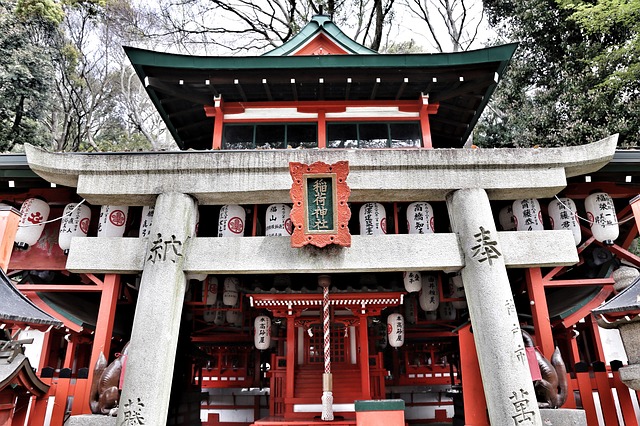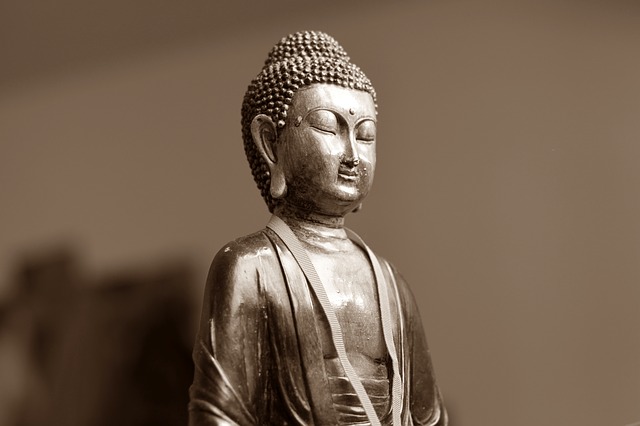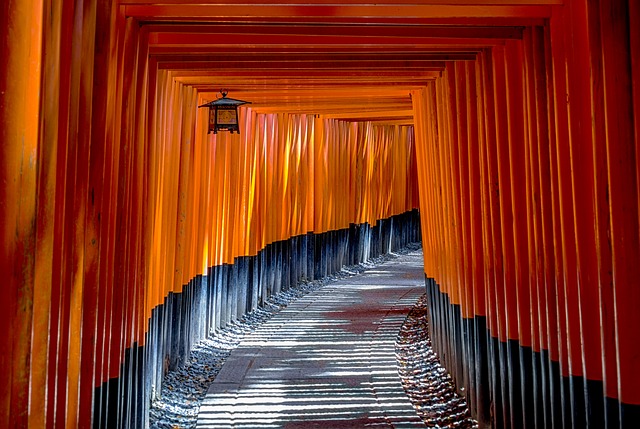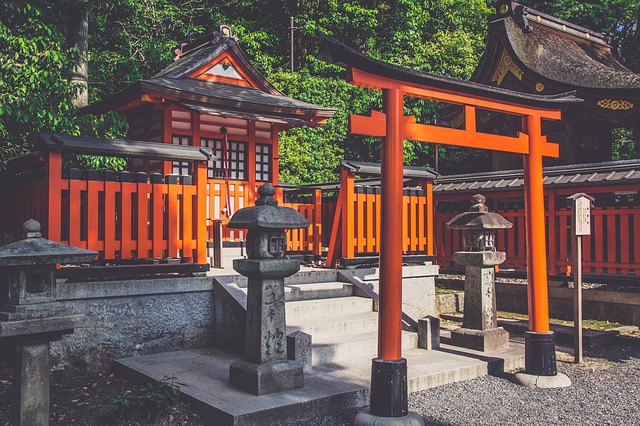The religion, rituals and relevant customs are different across nations.
Japan has unique features of their religions, and today I will explain it.
- Torii: The Big Gate
- Buddhism
- Shinto
Knowing Japanese cultures may help you interpret the meanings of shrine and temple, when you visit.
Torii (鳥居): The Big Gates in front of the shrine
You will find big gates in front of the shrine, when you visit.
The big gates are called Torii (鳥居) in Japanese.

How often and when do Japanese people go to shrines to worship?
The frequency and the timing are different across individuals.
But, generally speaking, most Japanese people visit shrines to pray for good luck and health during the New Year’s Holiday season.
The Japanese native religion
The Japanese native religions consist of
- Buddhism
- Shinto
Buddhism (仏教:Bukkyo)
Buddhism was introduced to Japan in the 7thcentury.
Japanese at that time immediately began to try to find a way to relate buddhas and deities.
Approximately 70%–80% of Japanese population are Buddhists, but most people do not visit Temples weekly for pray as if Christians do.
For many Japanese people today, Buddhism is mainly related to funeral rituals for their relatives.

Shinto (神道)
The native religion in Japan is so called Shinto ( = 神道) and the places of worship are called Jinja or Shrines.
Shinto ( 神道) consists of two words
- Shin (神) = god
- To (道) = road
By the 10thcentury, Shinto were taken to be incarnations of buddhas and bodhisattavas.
Out of the development of Shinto, Shinto deties are considered as Japanese manifestations of buddhas.

Acceptance of multiple religions in the life
The cooperations of Buddhism and Shinto helped Japanese people to accept multiple forms of religion, rather than choosing just one religion.
Most Japanese people pray to Shinto for Health, visits Buddhist teamples at New Years days, and provide wedding ceremonies in a Christian-style church or hotels.
Most foreign visitors wonder why they allow multiple religions in Japanese life.
Basically, Japanese people are not exclusive for their religions.
Throughout the history, Japanese think that any spirits or religions can have benefits on to human beings.
Simply, they are maintaining the tradition.



Comment Comment